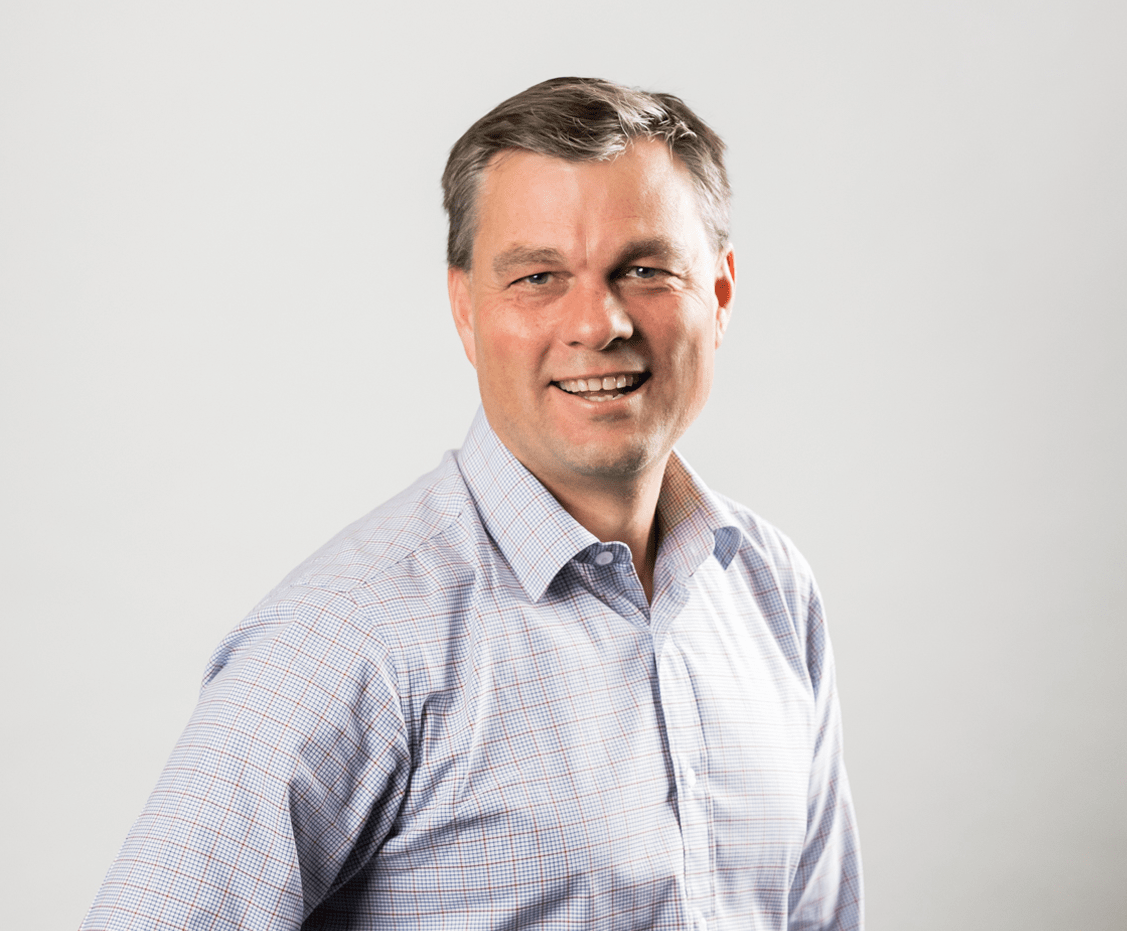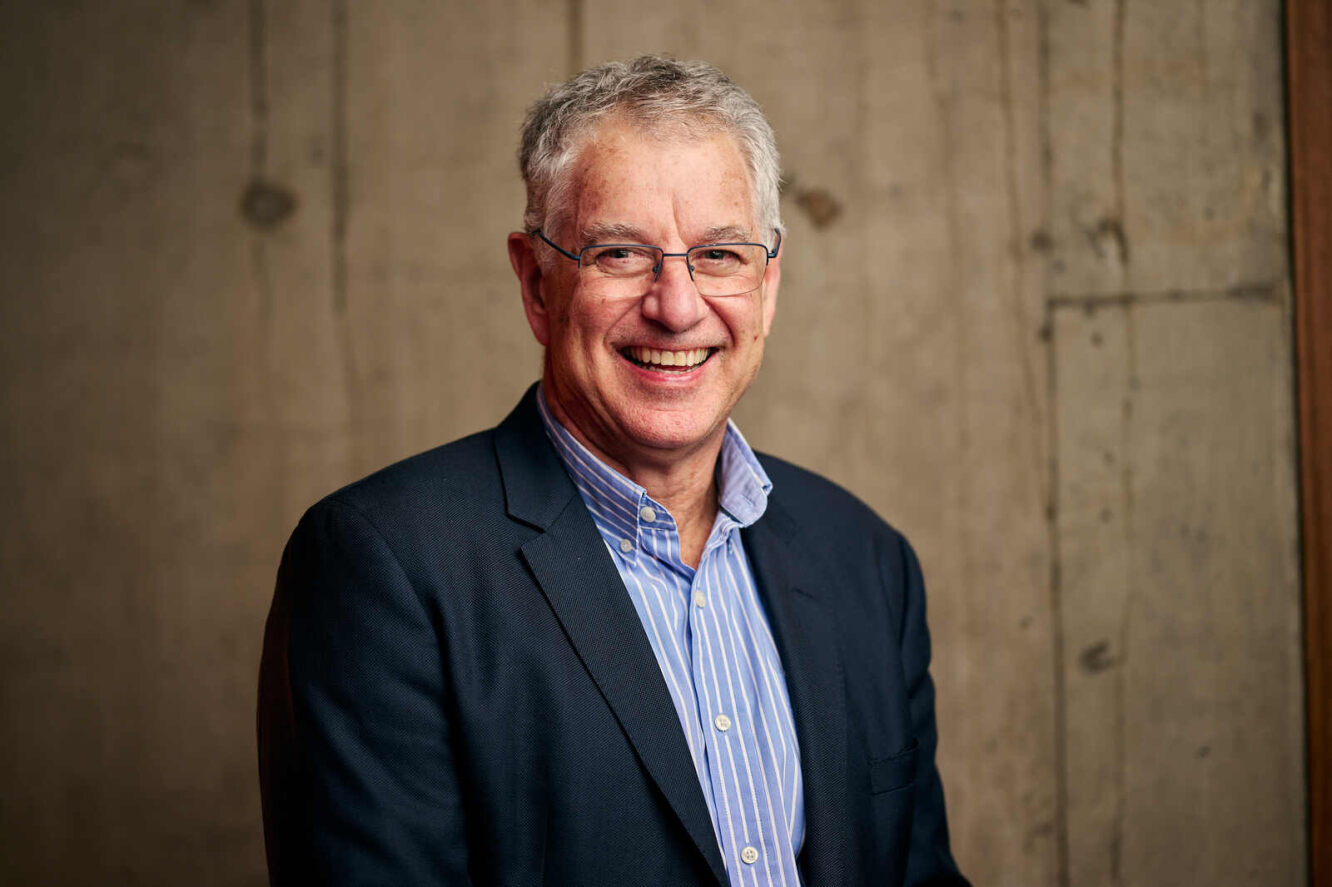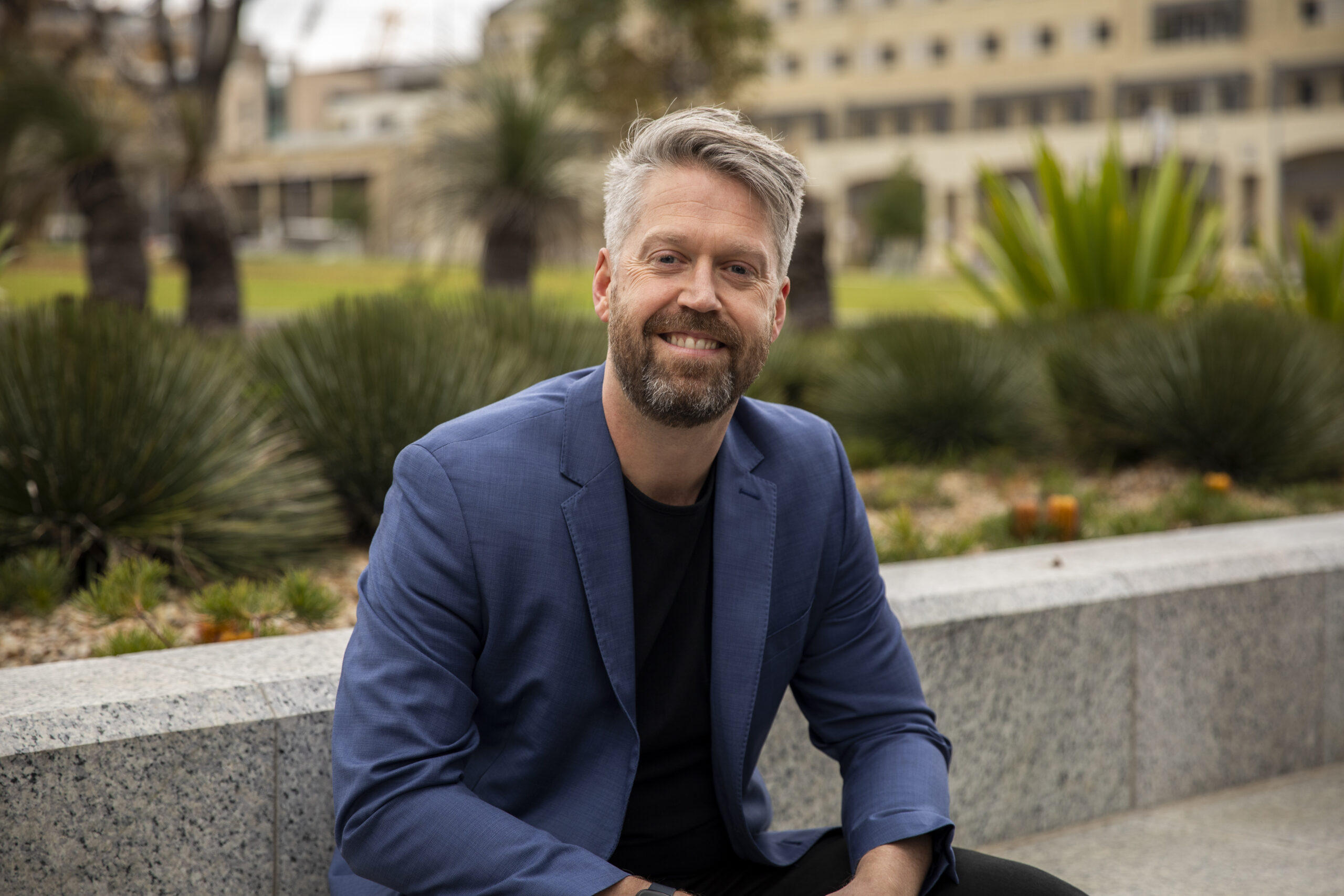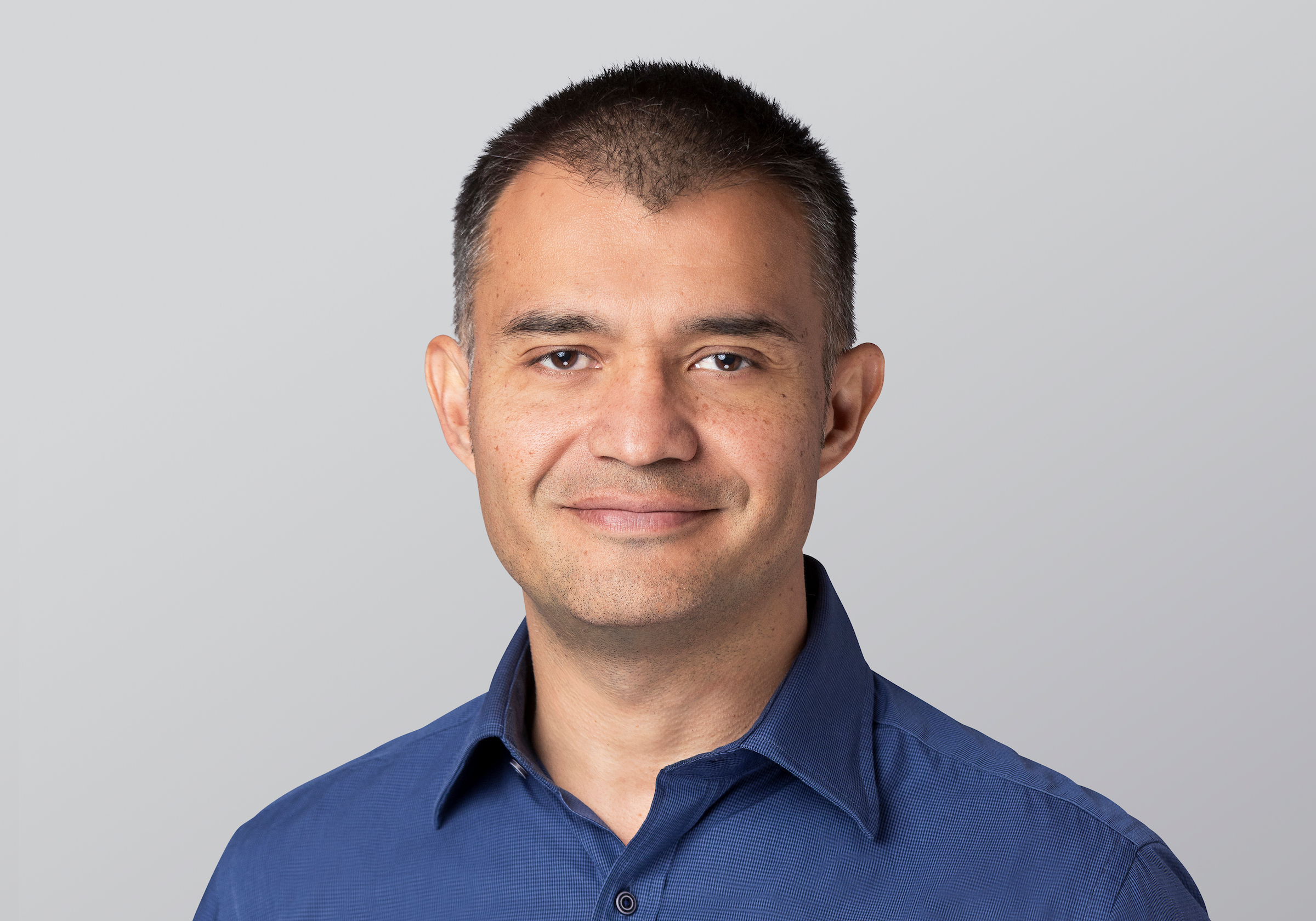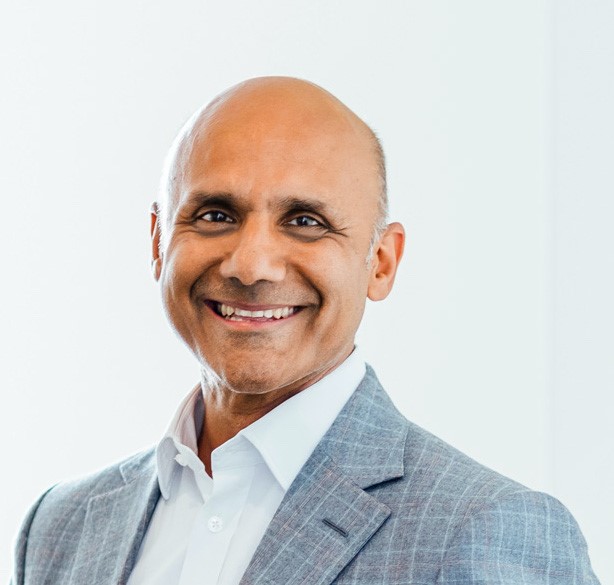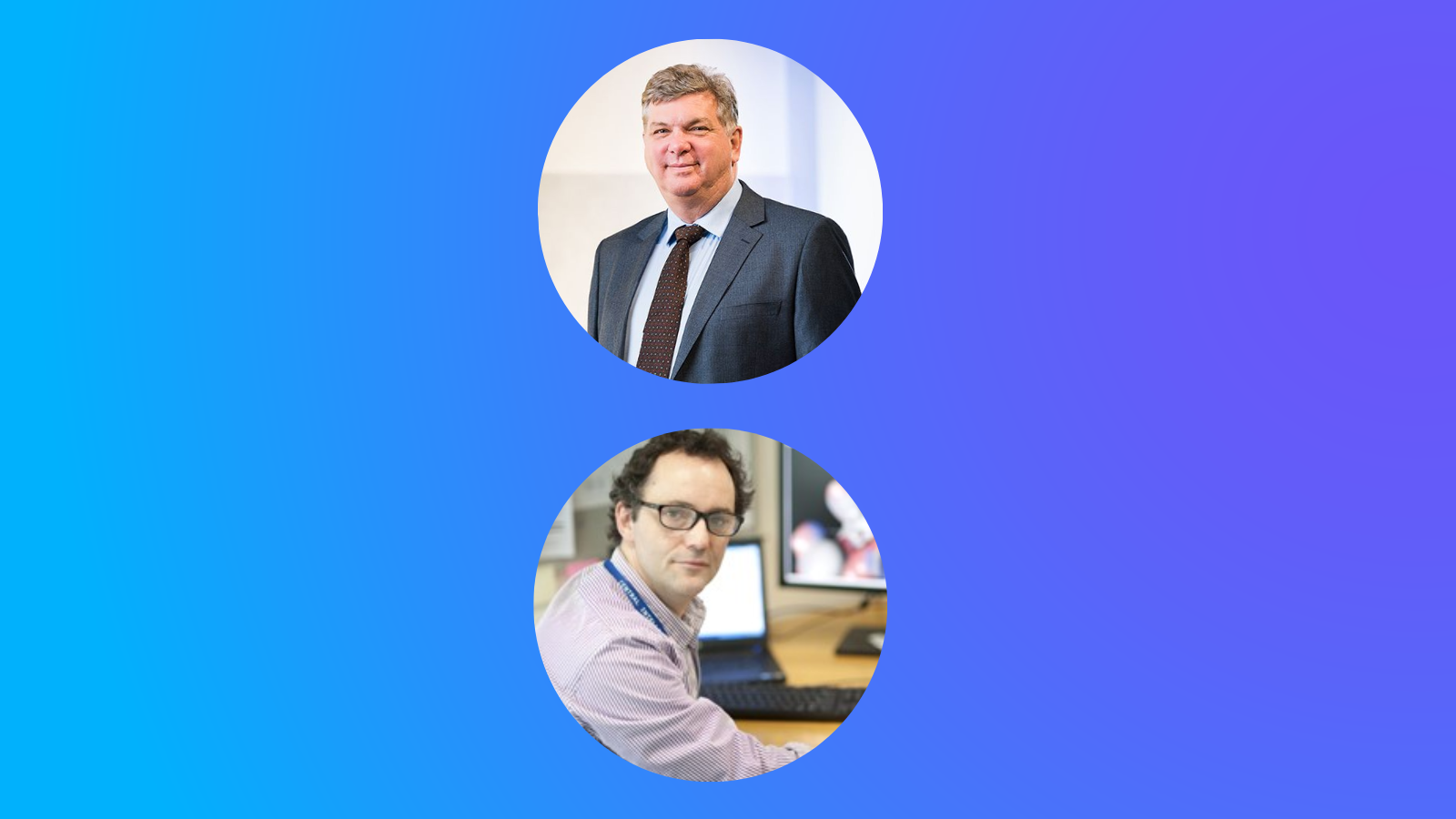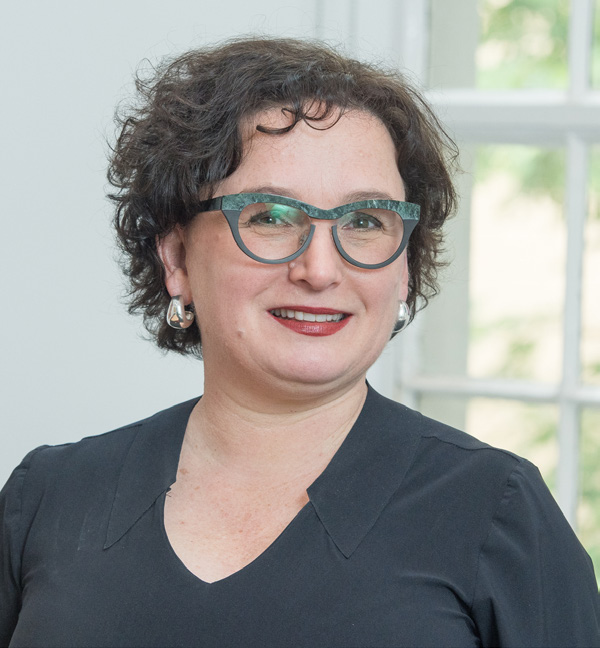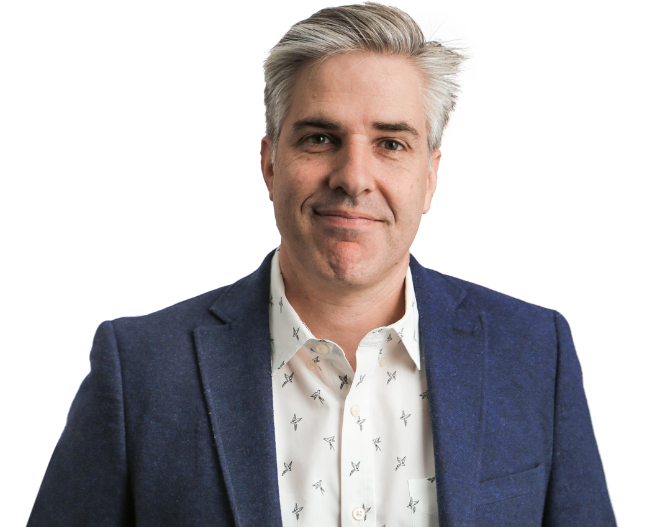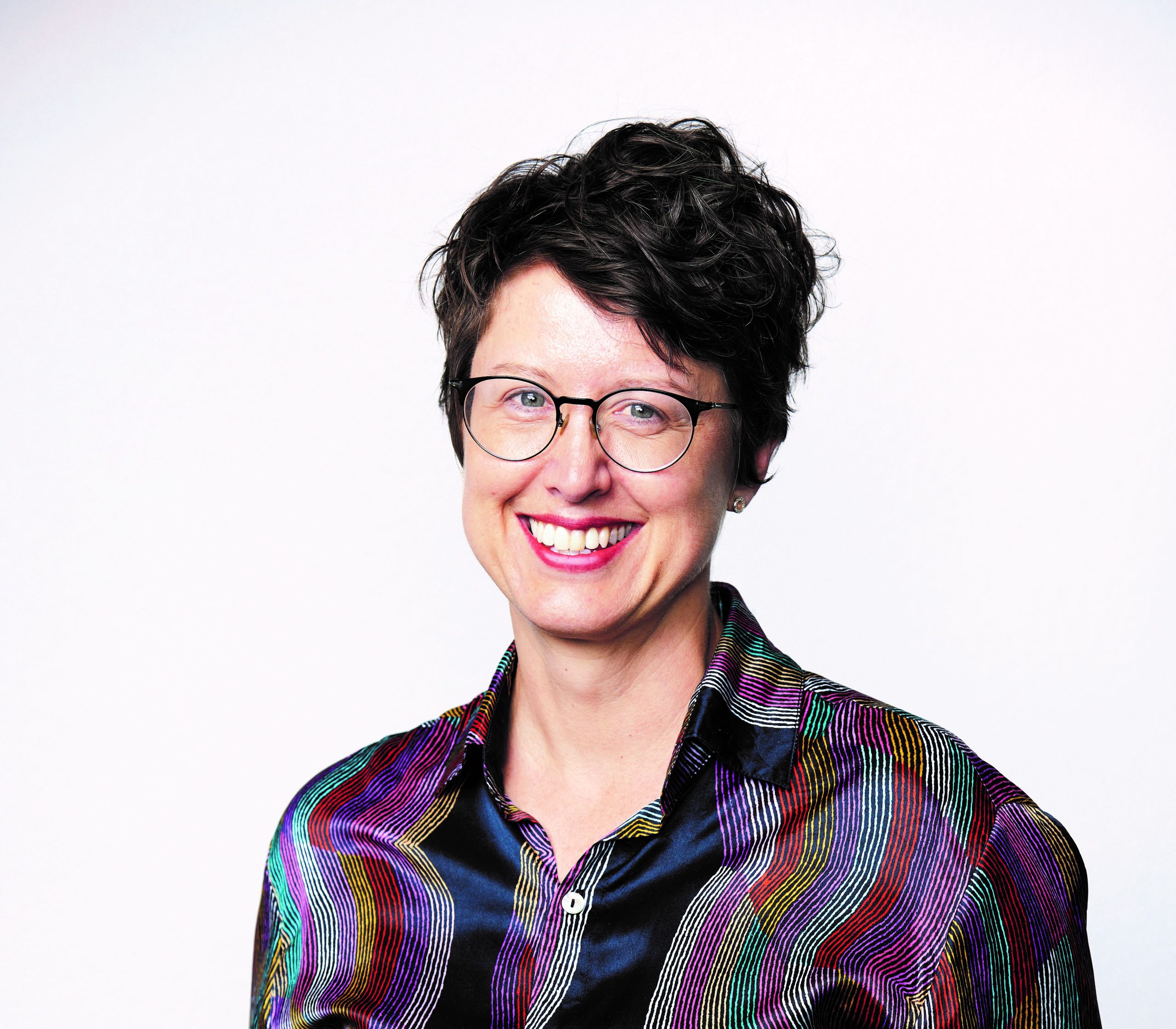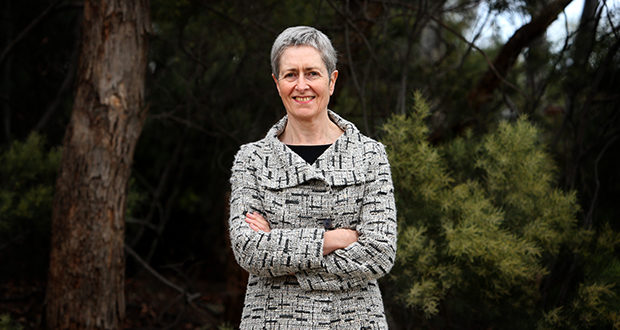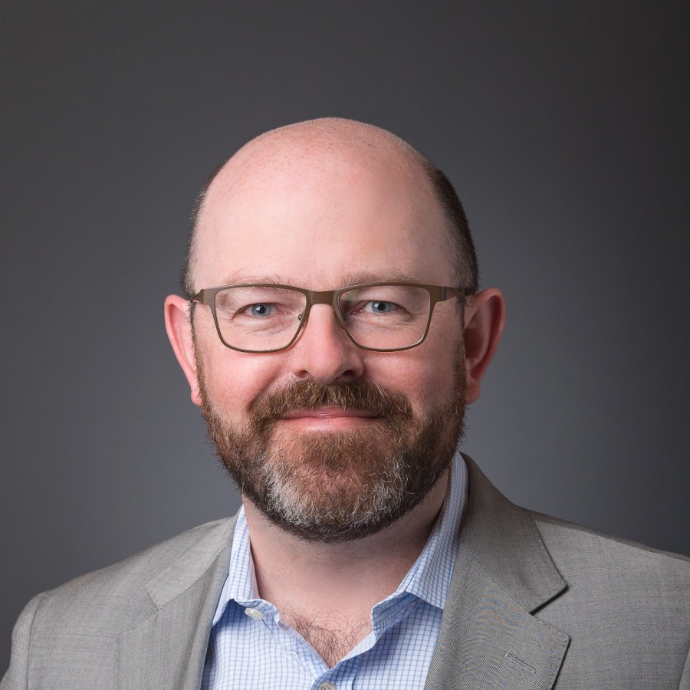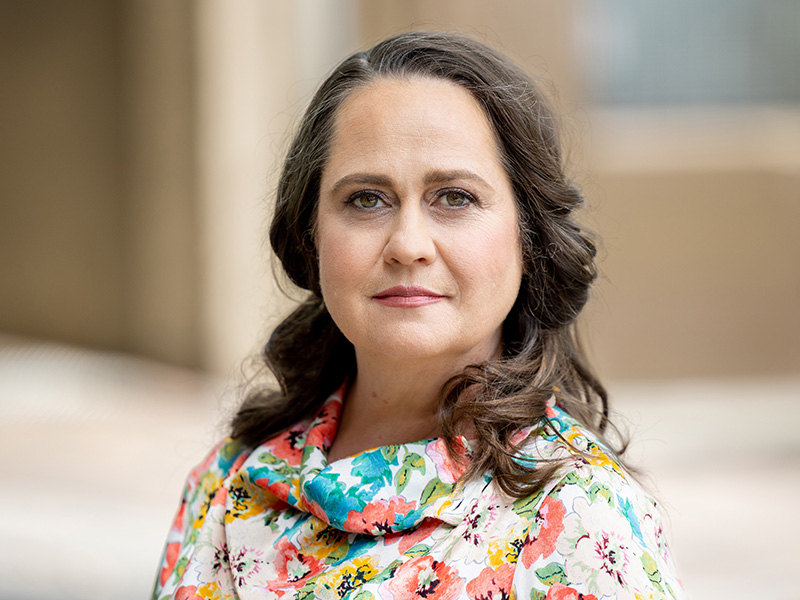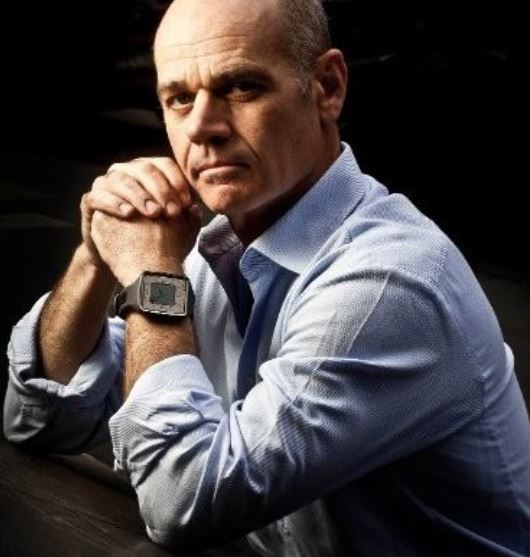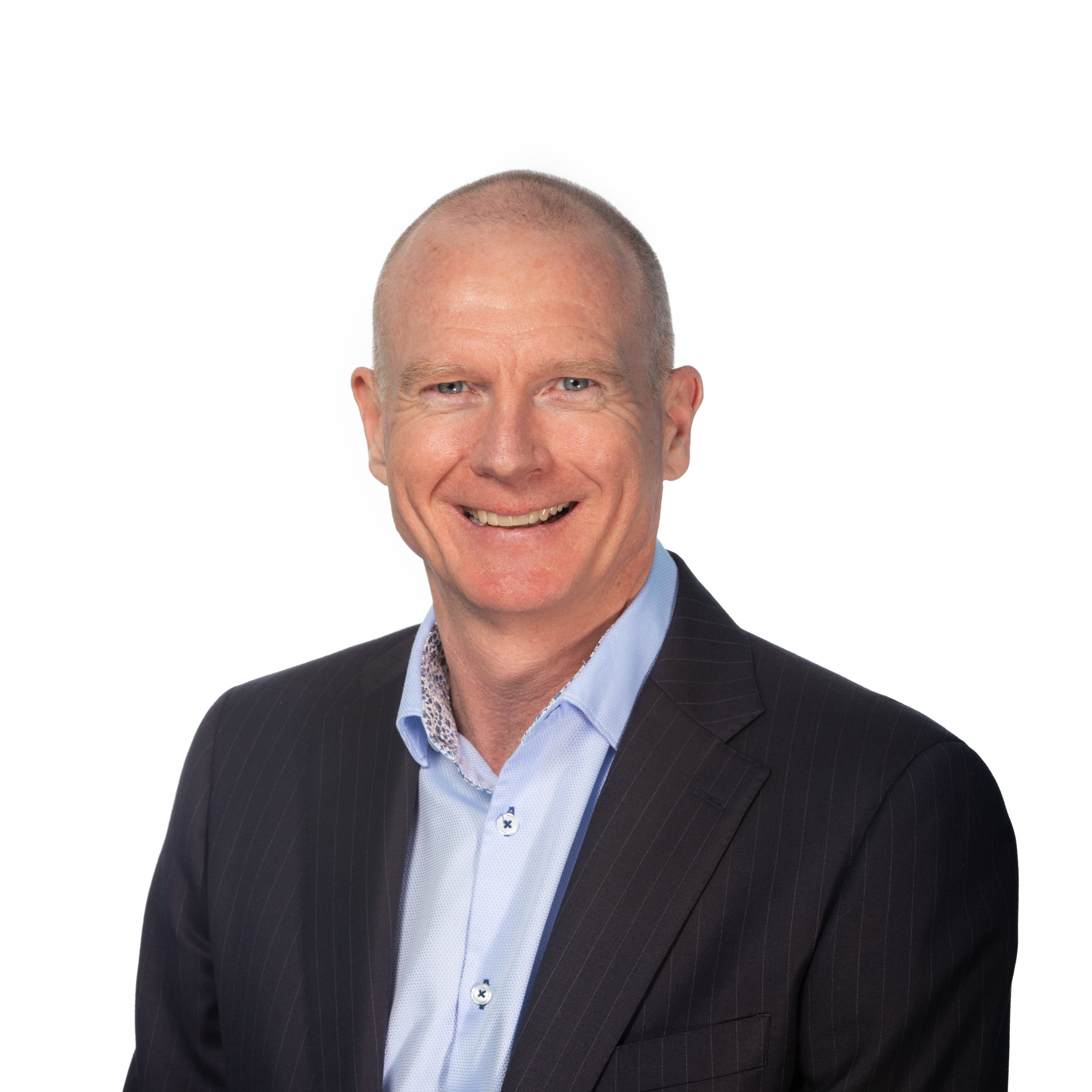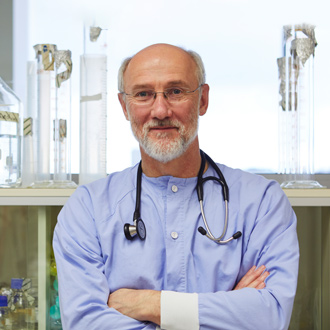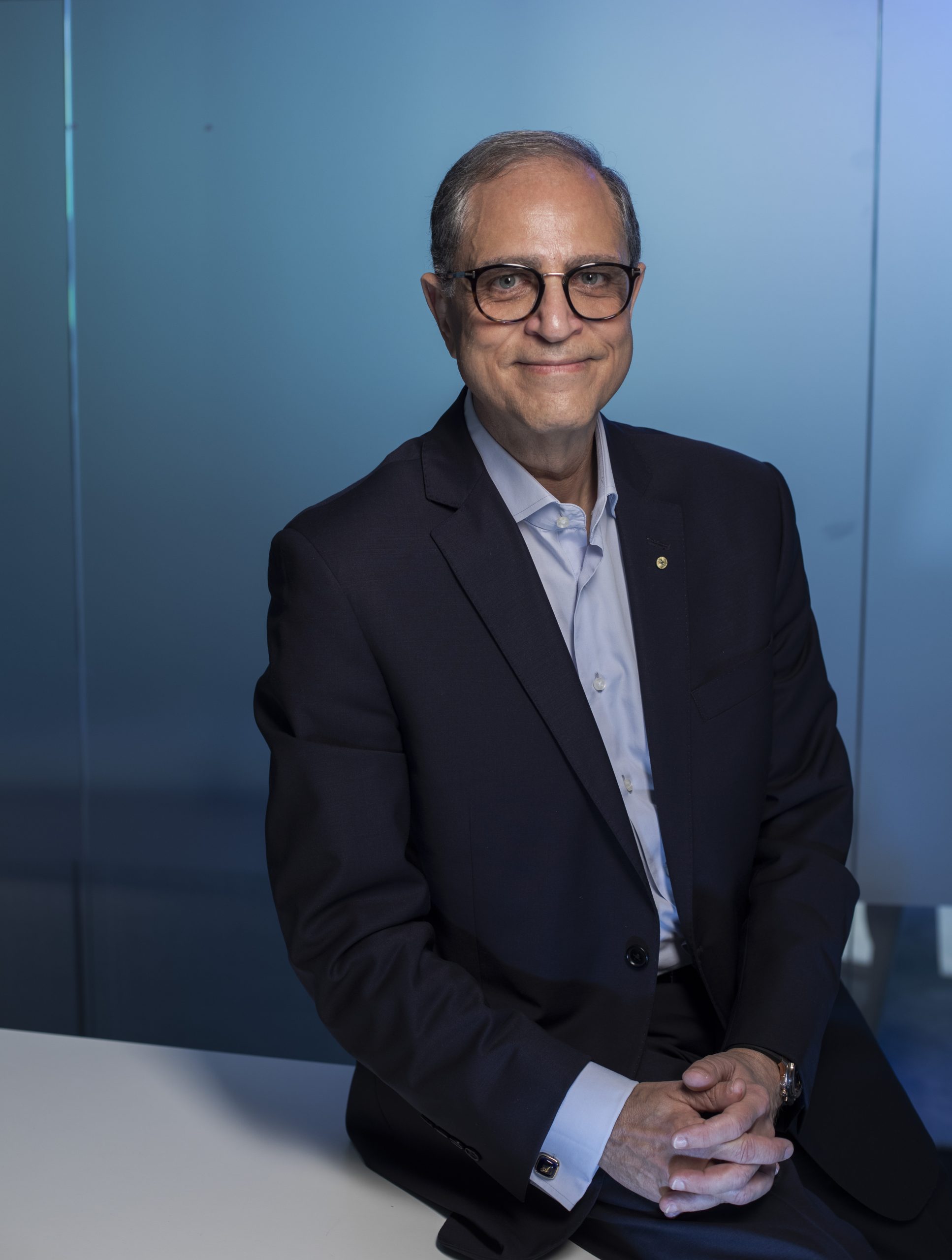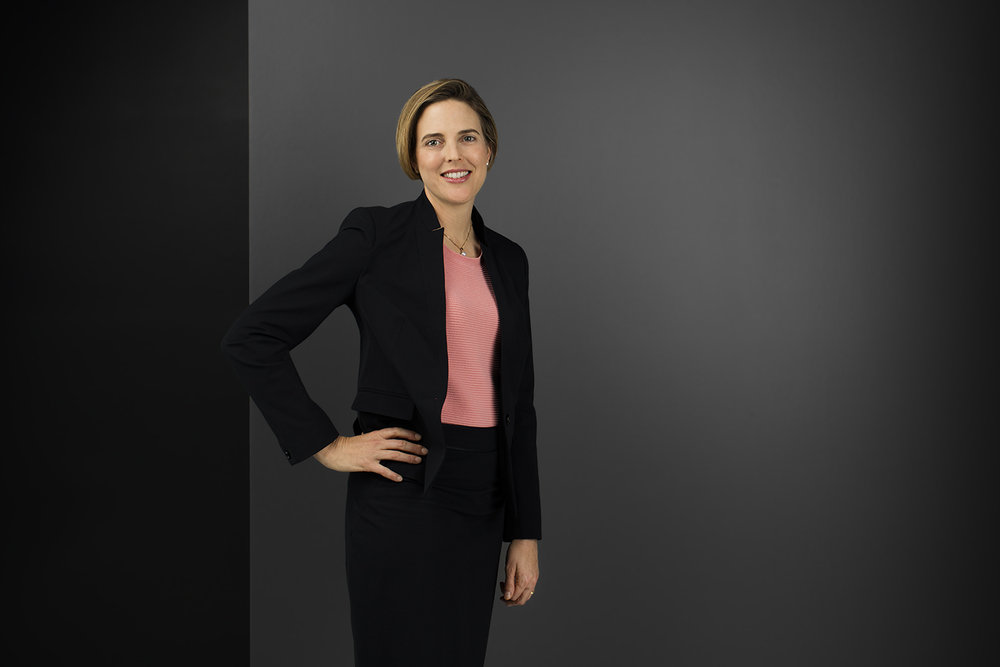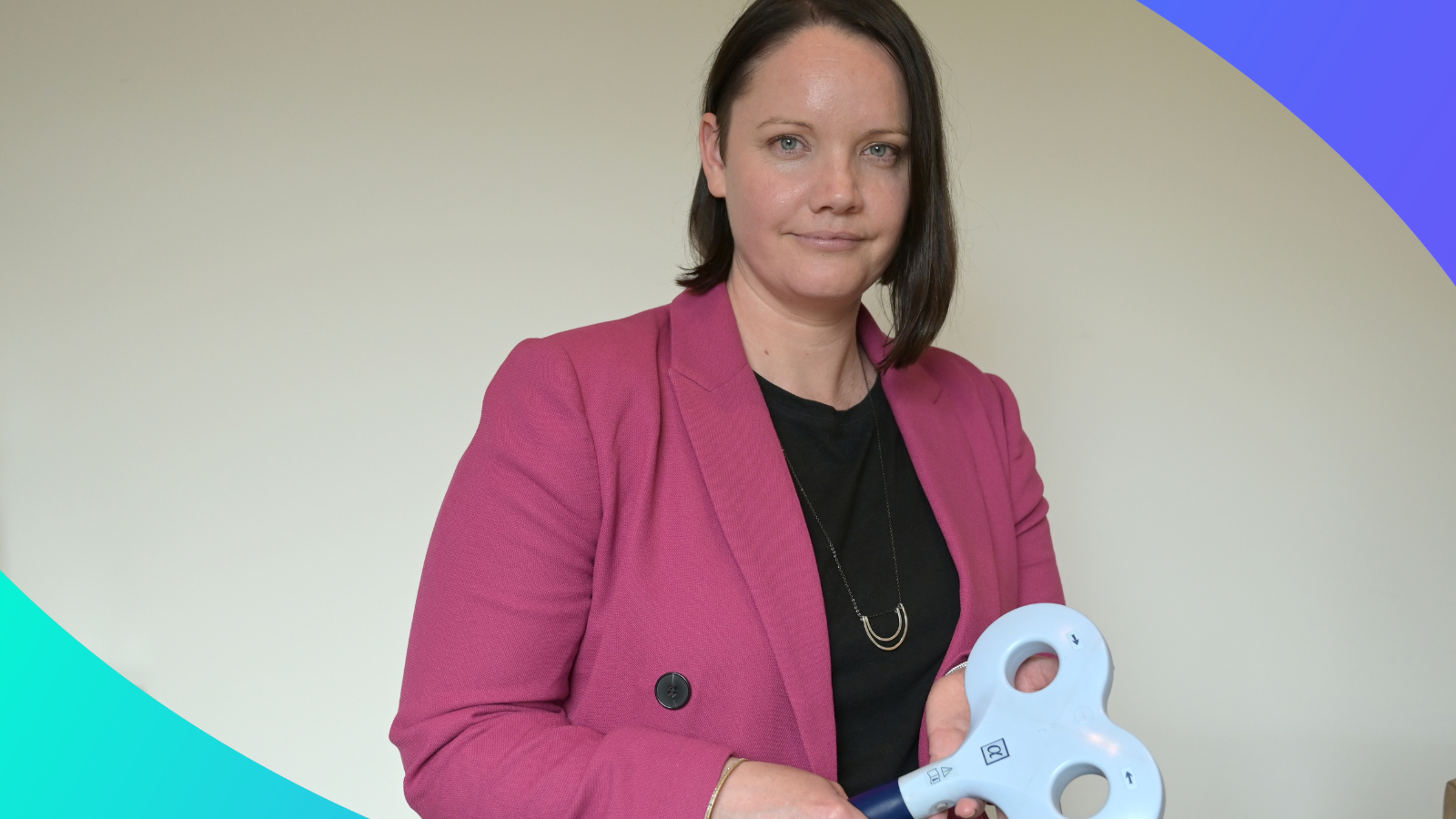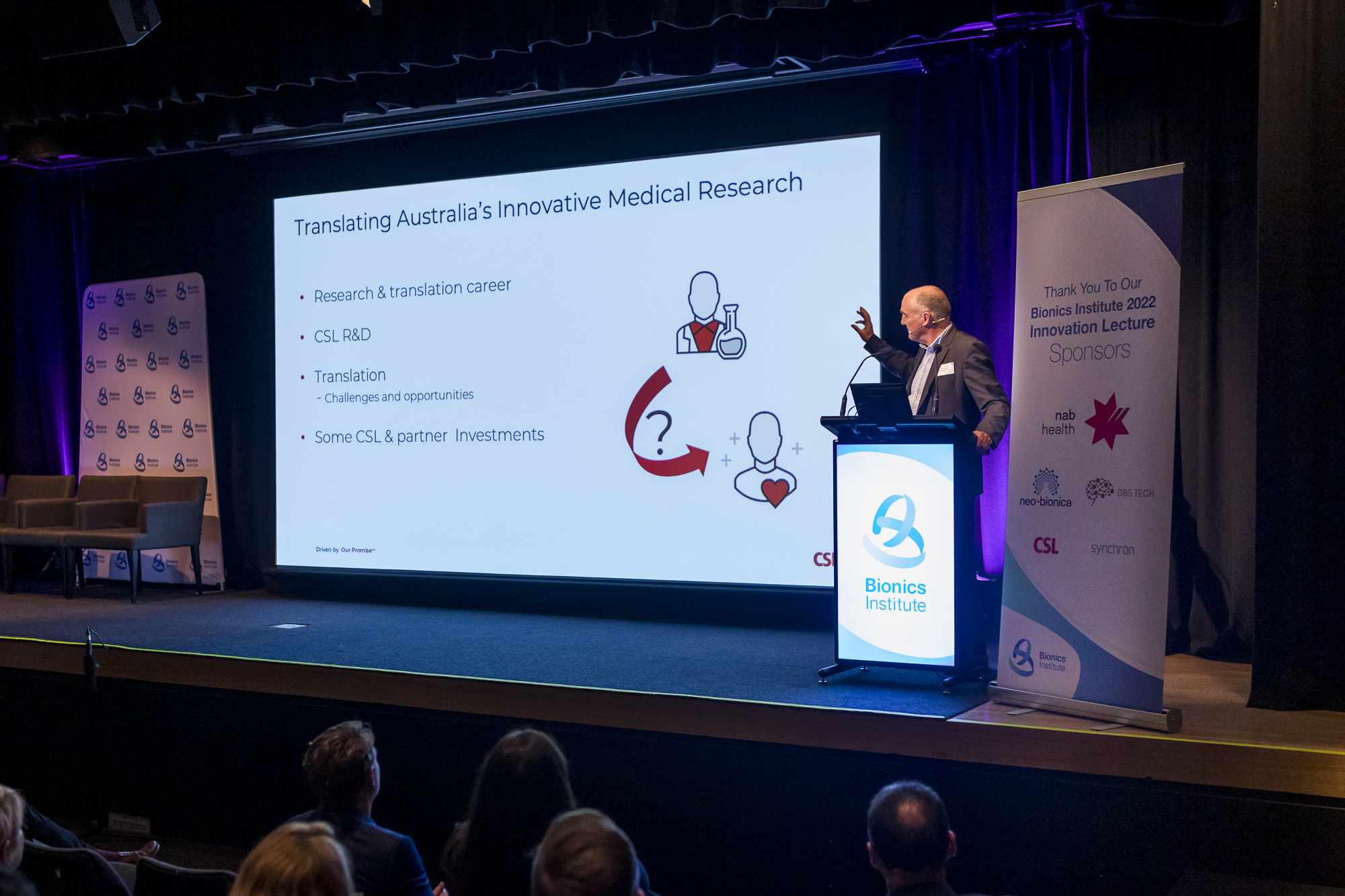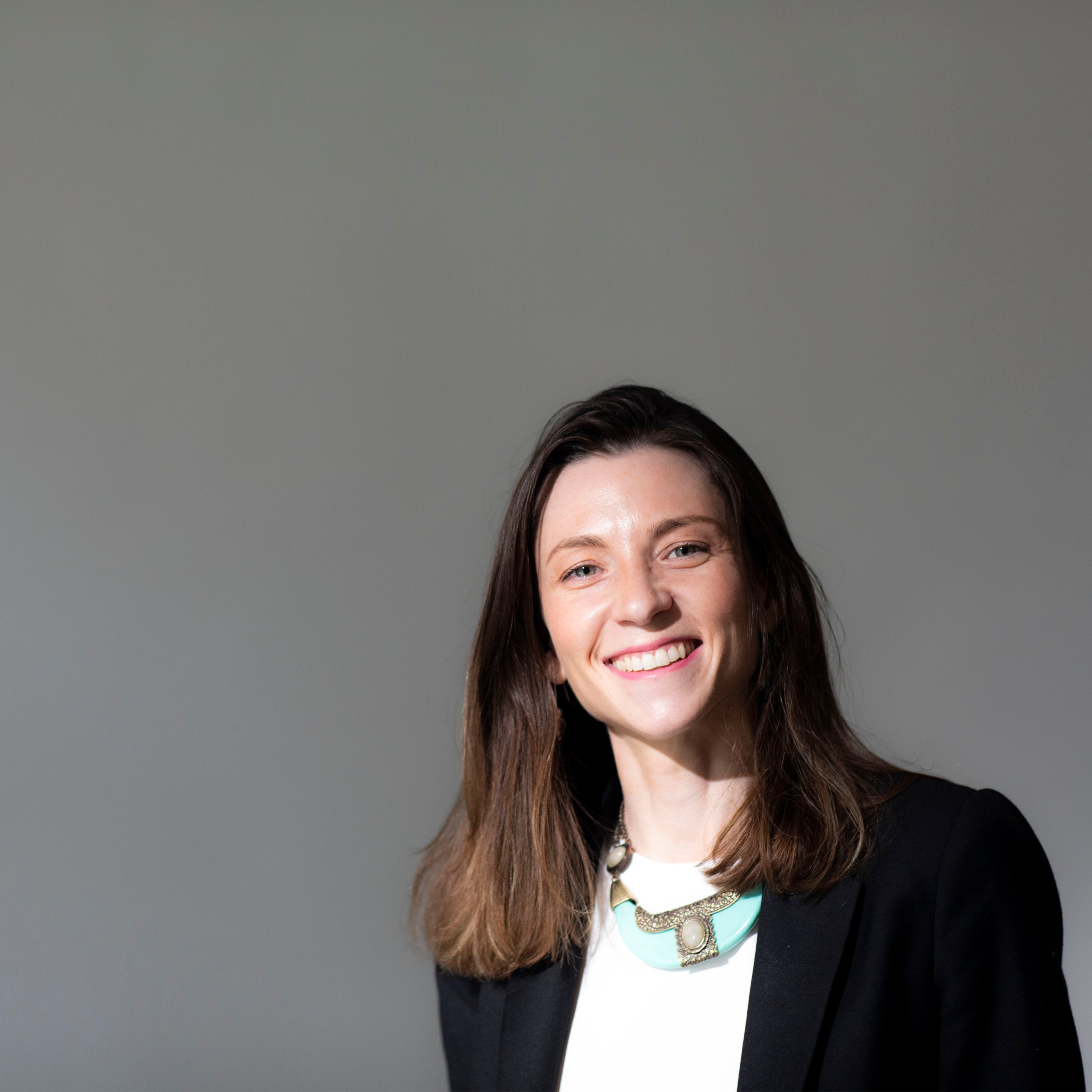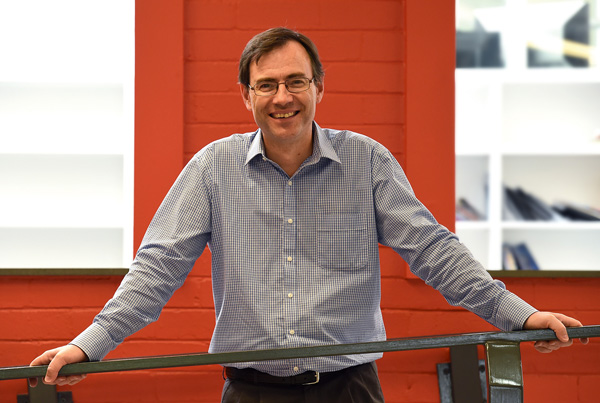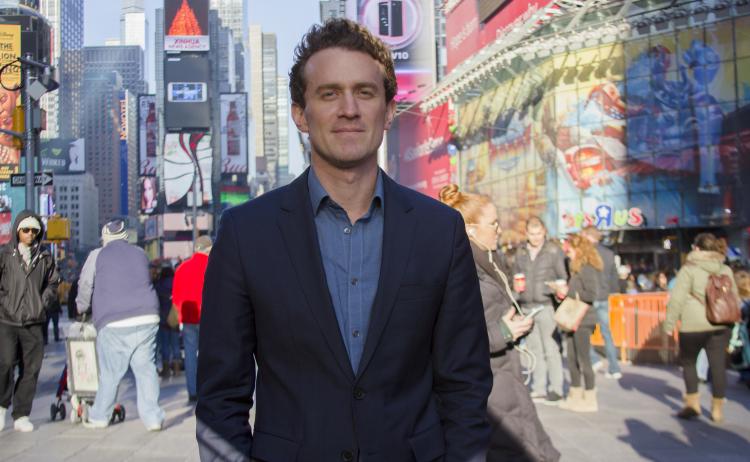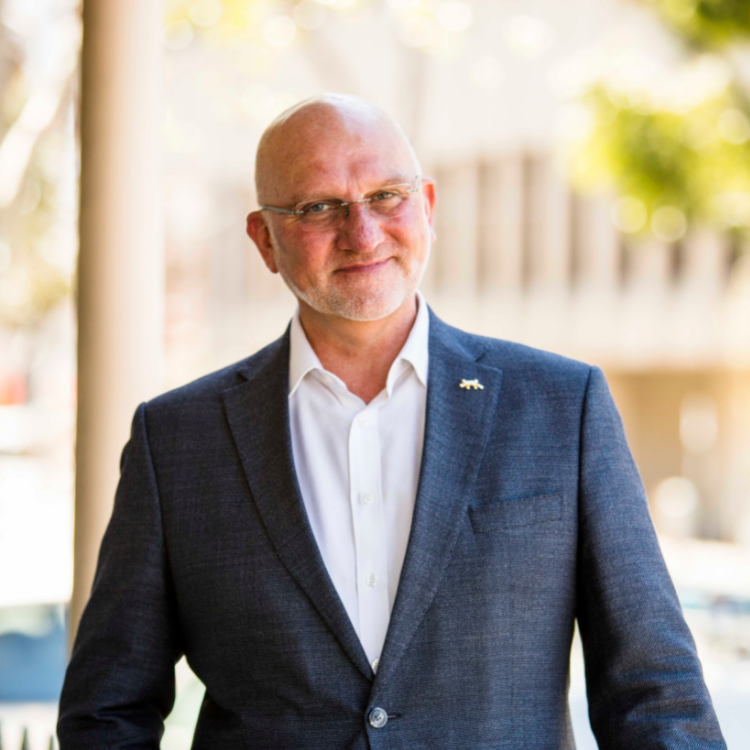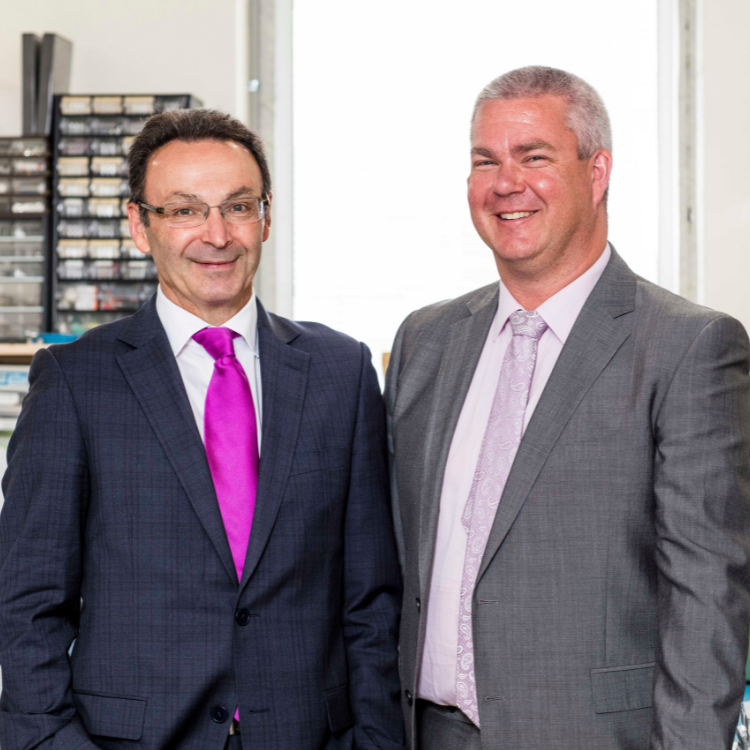Med Tech Talks
Vaccines, funding reforms and improving equity in medical research with NHMRC CEO Professor Steve Wesselingh
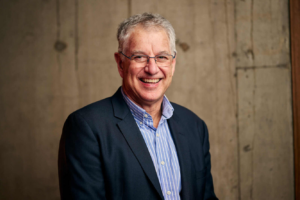
Professor Steve Wesselingh, CEO of the NHMRC
An infectious disease physician and researcher in HIV vaccine development and the impact of the microbiome on human health, Steve has a wealth of medical experience, clinical leadership, and national and international success.
The NHMRC is Australia’s lead agency, driving innovative health and medical research to improve the health of all Australians.
Along with providing an ethical framework for health and medical research in our country, the NHMRC supports the discovery of new knowledge and its translation into public health, health services and medical products to improve health outcomes for all Australians.
In this episode you will hear about:
More information:
Learn more about Professor Steve Wesselingh
00:01:45 Professor Steve Wesselingh Thanks very much. Really looking forward to it.
00:01:47 Robert Klupacs Fantastic. Steve, let’s – for our listeners – let’s start at the beginning of your journey. As we noted earlier, you have a major background in infectious disease, HIV and vaccine development. Where did your academic interest in these areas stem from?
00:02:04 Professor Steve Wesselingh Yeah. So I’m thinking back on that. Actually, as a medical student, I wasn’t actually very interested in research at all. I was actually much more interested in playing football and windsurfing and so late in my medical school career or in year six, I went to Papua New Guinea, for three months. And then again, as a registrar, I went to Papua New Guinea and worked in, at the Goroka Base Hospital. And I think those two experiences really made me think about, firstly, you know, inequity in health and the needs of the region. But obviously in Papua New Guinea, you all you’re treating is infectious diseases. And I thought there’s so much to do here. And that really sort of stimulated me to think about a, firstly, a career in infectious diseases and secondly, a research career.
00:02:57 Robert Klupacs Steve, you’ve had a very varied career to date. So, from your perspective, what are some of the highlights and what are the key learnings you’ve had along the way?
00:03:07 Professor Steve Wesselingh So as I mentioned, PNG was really … when people… when you’re talking to people and you reflect on your career and what are the things you talk about, when I talk about PNG a lot. And the second thing I talk about was, after my Ph.D. at Flinders, I went to Johns Hopkins, and that really had a huge impact on me as well. Here was a sort of a place where health care and research was totally integrated. It was winning the most NIH grants in the United States at that point. And, you know, it was really had a culture of the best of the best, you know, truly looking for excellence and also looking for impact, which is something we talk about now. But even back then at Hopkins, it was all about the work you do having an impact on health care. And, so yeah, Hopkins had a huge impact on me, both in terms of wanting to embed research in health care, wanting research to be close to the delivery of health care, but also that pursuit of excellence and really aiming to be the best of the best.
00:04:09 Robert Klupacs Any any highlights post Johns Hopkins?
00:04:11 Professor Steve Wesselingh Yeah. So, after, Hopkins I came back to Adelaide and then actually I moved to Melbourne and lived in Melbourne for about 15 years, and all three jobs in Melbourne were really, really, both impactful on me and and very satisfying. Firstly, you know, my first real job really was heading infectious diseases at the Alfred Hospital at the time that Fairfield and the Alfred were joining together, and they looked after all the HIV AIDS patients in Melbourne through the Victorian AIDS service. And so that was very impactful around that time when HIV AIDS was a real, huge, issue and one where there was an enormous amount to do. And then following that, I went and headed up the Burnett and again learning so much about public health and, infectious diseases research at the Burnett, but particularly the public health and the impact that Burnett was having on the region, working in, again, Papua New Guinea, Cambodia, Myanmar, all over the the region, was very impactful. And then finally getting involved at a university, that is Monash University, and becoming Dean of Medicine at Monash University and understanding the the really critical role of the university both in training and pedagogy, but also in, you know, leading research and a research intensive university like Monash. You know, I learnt such a lot there.
00:05:42 Robert Klupacs Let’s pivot a little bit. So I’d love to get your opinion on in the area of vaccine research generally. So after studying overseas and carving out a reputation clearly as one of the world’s leading HIV researchers. We think you’d have some pretty clear insights into the challenging and you know, what a challenging disease it is. In the Covid pandemic, we went from discovering the virus to the development of vaccine in record time. But where are you with the development of the vaccine for HIV, and do you think a breakthrough is close?
00:06:15 Professor Steve Wesselingh So I guess I reflect on that. And thinking about HIV AIDS and research. I actually believe that it is one of the most outstanding translational stories that can be told. Moving from understanding what caused the disease to drugs to treat the disease in the developed world, and then those drugs moving into the developing world and now moving towards biomedical prevention and to an opportunity to actually have almost zero transmission in Australia is just amazing. But the one gap that you just talked about is the vaccine. And a vaccine for HIV is very, very difficult. But I do have confidence in our researchers and technology, and I think the learnings from Covid with the mRNA vaccine. I do think ultimately we will develop a HIV vaccine, but I think the translational story towards biomedical, prevention using anti-retrovirals and other biomedical treatments, I think is is really very exciting and actually is achieving a lot of what we would have achieved with the vaccine.
00:07:28 Robert Klupacs You know, that was going to be one of my questions, given the success of PrEP and things like that. As you say, is there a compelling need for a HIV vaccine?
00:07:38 Professor Steve Wesselingh I think that should still be a goal. Absolutely. And just going back to your Covid comment. A lot of the work that was done trying to develop a HIV vaccine actually fed into the development of a Covid vaccine. And that was one of the reasons why we developed the Covid vaccine so quickly. So I think the pursuit of a HIV vaccine is still really important. I think with there will be, a lot of discoveries along that line because it is so difficult, we’ll understand more and more about the immune system and the immune response to a really difficult infectious disease. And I do think ultimately we will have a vaccine and we should have one.
00:08:19 Robert Klupacs In new role, there’s a couple of questions we want to ask you about now that you in the new role, Australian research is so highly regarded for its quality of research. And clearly, this is underpinned by the NHMRC’s capacity to fund research projects that lead to discovery. We chatted to your predecessor. We also were reading the previous 2018 report, Measuring Up, that said, approximately 45% of Australia’s most highly cited publications, defined as the top 1% of the world, are attributed to NHMRC support. Why do you think Australia has developed such a strong and reliable research sector? And what is the NHMRC role into the future to maintain it?
00:08:59 Professor Steve Wesselingh So I think probably there’s there’s quite a lot of history there. And we shouldn’t forget that for 60,000 years in Australia, we’ve actually had, researchers and scientists understanding what happens in the environment and what’s happening in Australia. But then in the recent history, I think our, universities and MRIs have played a really critical role. And actually, when you look around the world, medical research institutes like the type we have in Australia are actually quite rare. And yet we have multiple MRIs around the country linked to hospitals and linked to universities doing amazing medical research. I think in terms of NHMRC, I think the thing that I think is most important is our people support in terms of making sure that people get support for a salary, support for research for five years, allowing them to be creative and innovative, and even change direction slightly through that process and really take their research along a path to truly impact and and sometimes, really… funding that is very directed towards a particular outcome constrain the research. Whereas I think how people support is flexible enough. A little bit like the Howard Hughes was supported, the United States; flexible enough to really allow people to answer critical questions and, as I say, follow a pathway to outstanding outcomes that we’ve seen Australian researchers produce.
00:10:36 Robert Klupacs It’s it really interesting because we have a follow on question, but your answer just feeds beautifully into that. Because you mentioned earlier that you were talking about impact and when you were Johns Hopkins, they were sort of ahead of the curve. Everyone talks about it. If you think of where we are in Australia at the moment, Australia’s research performance currently ranks 25th amongst 132 economies in the Global Innovation Index. On this podcast, we often talk about the valley of death and the need to bridge the gap between research and early translation to my clinical proof of concept or impact. What do you feel? I mean you’ve had a very long experience of this. What do you feel needs to happen for Australia to improve the medtech, commercial outcomes, or at least the clinical outcomes? And what role do you see the NHMRC in that process?
00:11:23 Professor Steve Wesselingh Yeah. So I do think this is a weakness in the Australian environment and the Australian ecosystem. And I think recently particularly through the MRFF, we’ve seen quite a lot of funding development. And one of my goals in NHMRC is to bring the MRFF and NHMRC or MREA closer together. So that we, we really take advantage of the, the synergies and opportunity for what, what, two amazing funding streams, one with $900,000 the other with $650 million bringing those together, both doing the things that I talked about in terms of people support, but really thinking innovatively about support for commercialisation, support for researchers that are willing to work closely with industry, support for researchers who want to work in industry. And so on. So I do think this is an area that, that needs more work. I think there are some pathways that have worked very well. I think the vaccine pathway in Australia has worked, pretty well, but that need a lot more work. So, as, CEO of NHMRC, this is an area that I really would like to concentrate on more for sure.
00:12:39 Robert Klupacs Yeah. And what what timeline have you given yourself, Steve, to to bring MRFF and NHMRC closer to the next couple of years. Is it a decade?
00:12:48 Professor Steve Wesselingh No, no, I would I would hope that we achieve that in the next 24 months or so. I think that it is critical, and I think there are a lot of opportunities there with… a lot of low hanging fruit that we can grab in the next 24 months to really achieve that.
00:13:04 Robert Klupacs ] I know there’s a lot of listeners on to this podcast who are very focussed on following for NHMRC and MRFF and are going to be very happy to hear that, Steve, I know that I can follow on. We had on a previous podcast, we had your predecessor, and Kelso was a guest, and you said at the time her goal was to move the dial in terms of gender equality in medical research, particularly restructuring the NHMRC’s grant program. And we’re progressing developments in peer review processes. With the change in leadership, you know, perhaps you’ve got new ideas and new philosophies. I assume also to build also to build on what’s gone before. But for me, and I know our listeners were curious to know what your goals are as CEO of the NHMRC, Steve.
00:13:50 Professor Steve Wesselingh Yeah. So obviously I think you know, Anne did such an outstanding job and, and relatively easy job just to take over from what Anne was doing because she did a great job. But I guess there are a few things. One, I’ve just mentioned the MREA/MRFF reform, bringing the MRFF and NHMRC closer together, I think is a really high priority for me. The second is that there is an opportunity, and the minister has highlighted this, to develop a new health and medical research strategy for Australia. And I think and I, NHMRC, has to play an important role in leading the development of that strategy for Australia. Really, the last time we had a new strategy was strategy was the McKeon Review. And I think it is really good timing now to look at the development of a totally new health and medical research strategy. I also would like to develop more capability in NHMRC and actually across the country to do research on research. I know that sounds a bit funny, but it… there’s a lot of work being done around the world in terms of research on research. We really have to understand better how to improve our peer review, the impact of our funding decisions, the impact of the guidance that we give around grant writing, etc. when we ask for ten pubs in ten years, rather than the whole CV, what’s the impact of that? And how important is that in driving people’s behaviour? So research on research is something I’m really interested in, and I think that will deliver more evidence based peer review improvements. And I also think we need to look at all of this through an equity lens. And that certainly what Anne did. And obviously the impact on gender was really important. Indigenous health research, really important; but also rural and remote is another area that, where this is an equity issue and I think one that we should be looking at. And then finally, I think one area that people don’t always talk about in terms of NHMRC is our public health work in terms of guidelines, water quality and so on. And we do such a lot of important public health work. One I’d like to see that … focus on that, a bit more understanding of the work we do. And then obviously, with the development of the CDC, I’d really like to see us working closely with the CDC in terms of that public health work as well.
00:16:20 Robert Klupacs Oh that’s fantastic. I mean, there’s a lot of things there: public health, indigenous, rural and remote, CDC. I think a lot of people don’t realise that is where NHMRC also plays. But I know, in in our orbit in the medical research fraternity, gender equity is still very much front of mind for all of us. And I know the NHMRC has been heavily focused on improving gender equity throughout the last 10, 15 years and continues to do so. Just for our listeners, can you tell us what strategies and initiatives are currently being brought to bear by the NHMRC? And what you’d like to be able to to do to expand on those in the next few years?
00:16:59 Professor Steve Wesselingh So yeah, as I mentioned, you know, Anne led, and also with the help of research committee and council, some major changes around gender equity. So that now in the leadership component of the investigator grants, we actually have two separate funds that fund men and women. And that means that essentially there will now, from now on, be equal funding for men and women in the leadership part of the investigator grants. In the EL part, in the early part of the leadership grants or the investigator grant, sorry. Then we actually have priority funding to make sure, again, that the funding rates are the same between men and women. So in the last round of the investigator grants, we were really pleased that there was equal funding across men and women in our biggest granting activity. And that is the investigator grant. So, that that’s an amazing outcome. And in fact, I think it is the way we did it is it’s certainly a world first. So we’re certainly leading the world in that area. But we do need to continue to follow and ensure in all of our granting schemes that there is gender equity. And secondly, we need to make sure that there is a clear pathway for women through the research process and the research career, and that we understand what opportunities there are and and what lots of opportunities there are through that process. And I think, again, we’re doing that through our peer review process. So, still, I think we’ve gone a long way but still work to do for sure.
00:18:41 Robert Klupacs Just outlier question, probably more coming specifically from the Bionics Institute, people that I work with here, we mentioned earlier about impact translation. In in the NHMRC scheme, I know there’s only limited pools of funding and we need to give it to the very best. But one area of translation could occur with the NHMRC through the development grant system. And in the usual envelope that you provide, I think it’s about $1 billion a year. Would you allocate about $15 million to development grants, but if you look back on some of the history of the people who received them, the impact they’ve made has been quite extraordinary. Is there any thought at research committee level, or your level of perhaps increasing the amount of funding through that part of your scheme?
00:19:23 Professor Steve Wesselingh Yes. So I as I mentioned before, I think this area is really important and I think the development grants actually have had worked really well. I would like to see us work with the MRFF and look at the allocation of funding that goes to development commercialisation pathways and, and really think about how much is needed and what’s the best way to fund those areas. And I think that is a is a real priority. And that that may well lead to more money going into the development grants. Or maybe a more obvious synergy between what the MRFF is funding and what we are funding in terms of commercialisation.
00:20:07 Robert Klupacs Yeah, really interesting question. I guess, you know, if I go right back to my time as a medical student at Flinders. It seemed obvious that the hospital and the university were one. I mean, I know that comes and goes a little bit in Australia, where hospitals and universities move apart. But there was a there’s a Professor of Medicine – the first Professor of Medicine at Flinders was John Chalmers, and he was a very strong character, but always thought about research and health delivery as one. And certainly that had a big impact on me. And when I came back from Papua New Guinea, John actually said to me, when are you starting your PhD? It was just assumed that, I would go on and do a PhD. It wasn’t asked; it was almost told. And there was another guy there, Peter McDonald, who was Head of Infectious Diseases. And that’s where I went and did my PhD – with him and John Finlay Jones and those three, men actually had quite an impact on me. At Hopkins, Diane Griffin, a really superb virologist and infectious diseases doctor, again, had a lot of impact on me and was an amazing leader in virology in, in the US. But one other person that really impacted on my thinking was actually someone called Michael Alpers. And I actually think Michael should have won a Nobel Prize. But Michael I made in Papua New Guinea, he, he when I got there, he’d been there for almost 20 years, running the Institute for Medical Research in Goroka and studying Kuru. And he and Gajdusek actually described Kuru and determined that it was a prion disease and that it was transmissible and amazing research that Gajdusek won the Nobel Prize for. But Michael was the guy that was there for 25 years in Papua New Guinea, following these families, doing the research, sending the samples to the NIH and so on. And just an amazing researcher, always concerned about equity, but also concerned about excellence. And, you know, the most amazing research in, in really, you know, quite difficult conditions in the highlands of Papua New Guinea.
00:22:48 Robert Klupacs Fantastic. I’m glad you get the chance to officially, tell the world about them, because sometimes we forget. So I’m glad we’ve got that on the record, Steve.
00:22:57 Professor Steve Wesselingh And a lot of the work, by the way, a lot of the work that Michael did in Kuru had, you know, substantial impacts on Creutzfeldt-Jakob Disease and also mad cow disease, because he was able to work out the incubation period for these prion diseases. So, you know, really interesting work. Yeah.
00:23:16 Robert Klupacs I’m going to go and I’m going to go back and read a bit of his work. Actually. I’m fascinated by that. Last question, we don’t want to take up too much your time, but it’s interesting. We’ve asked a lot of our guests, and particularly in the medical research field, people like you’ve had a major impact – how do they make an impact? What what have you learned over time and what would you advise them to do? It’s not just about being successes in their career, but also to make an impact. And we’d love to get your views on that to finish this podcast off, Steve.
00:23:46 Professor Steve Wesselingh Sure. Yeah. No, I think most importantly, I think you have to do what you’re really interested in. I think sometimes people think, oh, I should go in this area cause the jobs in this area or this area seems hot, and you know. But really do what you’re most interested in, most passionate about. Because if you do that, you’ll do it well. And then if you are interested and passionate, you should try and do that at your very best. And if you become the best you can be in that particular area, there’s no doubt that you’ll have an impact and you’ll be successful. Second point I’d make, is travel. I think it’s really important for people to think I know it’s sometimes hard to with family and other responsibilities. But if you get the opportunity to travel, to go, as I did to Papua New Guinea or to other countries, to go to the United States, UK, anywhere but travel, because there are so many people around the world doing so much, interesting work and in, in different ways than we do it in Australia, that you can only learn and you can only get better by travel. And finally, you know, take risk. I think it was Gretzky, you know, famous hockey player who said you miss all the shots you don’t take. I and I think that’s a really important point. You know, if you don’t take the shot, you can’t score the goals.
00:25:06 Robert Klupacs Yeah.
00:25:07: Professor Steve Wesselingh So, you know, take risks and go for it.
00:25:10 Robert Klupacs Three fantastic, fantastic points. I think we might put that up when we put this podcast up that’d be the highlights I think. Steve. So we’ve reached the end of the podcast today, and I really thank you for giving us your time and for sharing your insights into the mid tech industry and how can improve innovation across Australia. To our listeners: I hope you enjoyed listening and I look forward to introducing you to our guests in future podcasts. There are links to everything we talked about in the show notes, and we look forward to welcoming you next time.
Listen to other episodes of Med Tech Talks here
